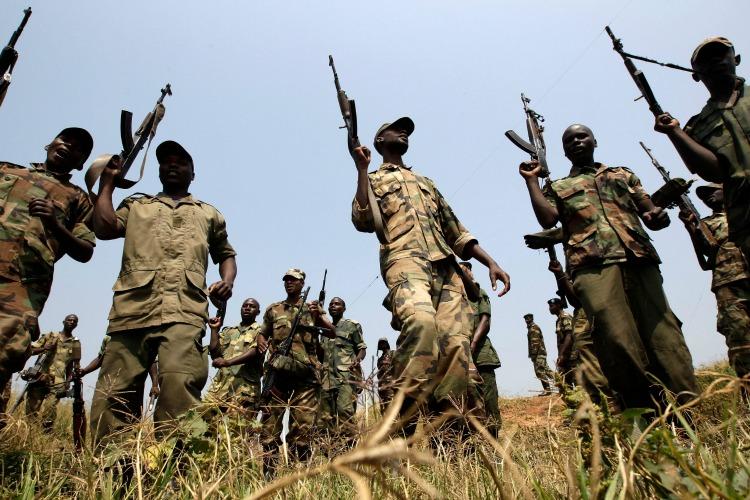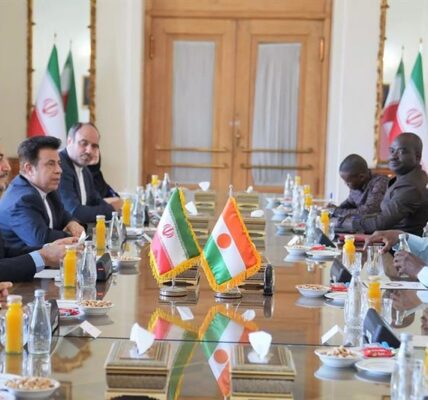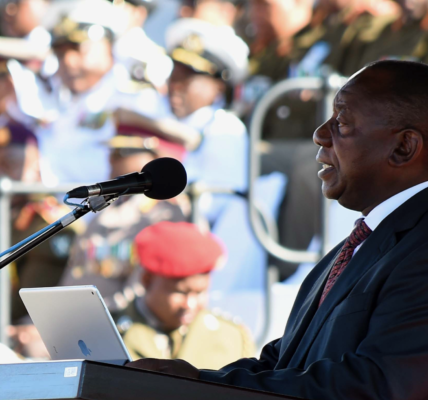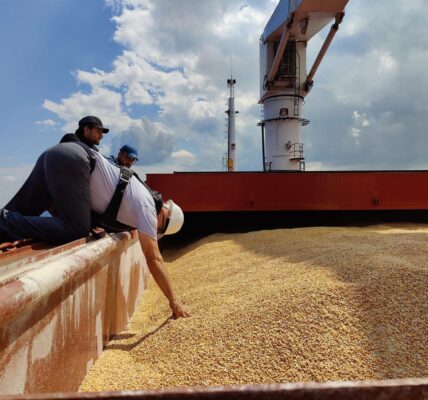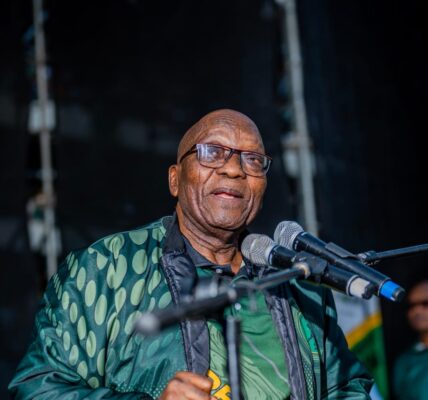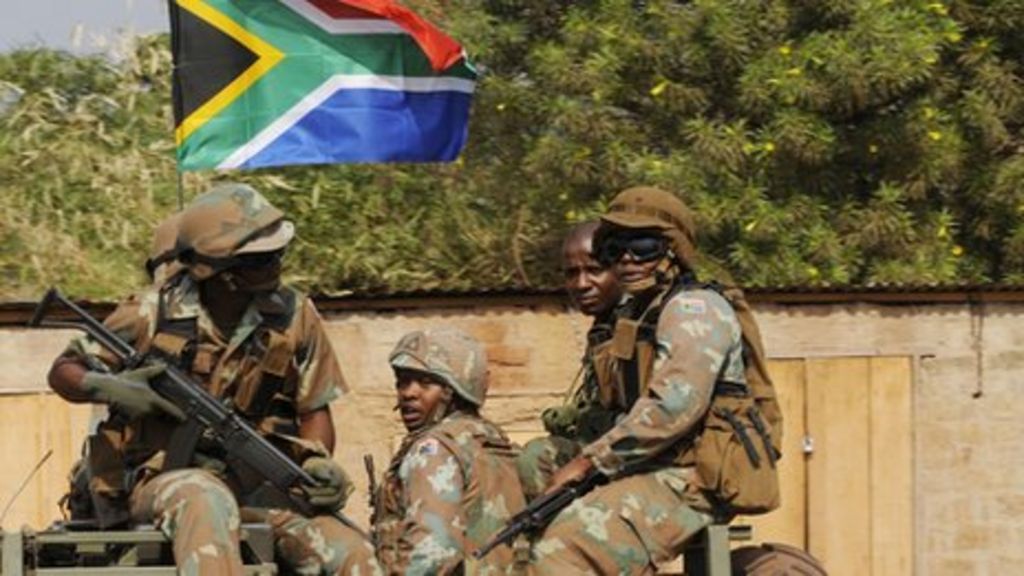
While some analysts are warning that there is a risk that the conflict in the Democratic Republic Congo could escalate into a war affecting countries all the way down to South Africa, others believe that a regional conflict is unlikely as it serves no country involved in the region’s purpose and could lead to significant losses for Rwanda.
In an opinion piece for Bloomberg, political commentator Justice Malala warned that the sabre-rattling and armed clashes between the DRC, Rwanda, Uganda, and other African countries could lead to a repeat of the world’s deadliest conflict since World War II, which occurred between the DRC, Rwanda, and Uganda from August 1998 to July 2003.
North Kivu in the DRC is currently battling a two-year insurgency by the Rwanda-backed M23 militia, which has displaced more than a million people. A UN report indicates that 3,000 to 4,000 Rwandan troops are fighting alongside the Congolese army. The DRC government believes that Rwanda holds de facto control over M23 operations.
“Conflict between Congolese and Rwandan leaders have sharpened dangerously,” Malala stated. “Peace initiatives have collapsed, an arms race is underway, and deadly clashes between both sides and their aligned militias are frequent. All the warning lights for a repeat of the 1998-2003 war are flashing.”
Malala expressed concern that the potential for war is heightened due to a plethora of armed groups already operating in the region, including those from the DRC, Rwanda, Uganda, Burundi, and forces from the Southern African Development Community (SADC), which includes South Africa, Malawi, and Tanzania as part of a peacekeeping mission. He noted that other DRC neighbours—Angola, the Republic of Congo, Tanzania, Kenya, and Zambia—could also be drawn into the fighting.
Additionally, there are at least 12 armed militias operating in the region, and mercenary groups like Russia’s Wagner Group have been contracted by various players in the DRC, according to Malala.
The reasons for the fighting, he said are decades old and complex, “but it currently boils down to various players’ bid to dominate the DRC’s abundant mineral resources.”
The DRC produces 70% of the world’s cobalt, mostly mined by Chinese companies, and the Great Lakes region features many other minerals essential for global green transitions.
How likely is a Great African War and can it be prevented?
A ceasefire has been announced in eastern Democratic Republic of Congo, with Angola receiving international applause for its mediation efforts. This ceasefire, agreed upon between the foreign ministers of the DRC and Rwanda, will take effect on 4 August. However, this is not the first attempt at peace; there have been many efforts made in the past.
An 11,000-strong United Nations peacekeeping mission, which has aided the DRC government in fighting against rebels for more than two decades, is in the process of withdrawing from the country. The peacekeeping mission, known by its French acronym MONUSCO, was supposed to complete its withdrawal by the end of the year.
However, the DRC foreign minister, Therese Kayikwamba Wagner, has asked MONUSCO to remain in the conflict-torn North Kivu area, stating in an interview with Reuters, “The current situation, with the presence of Rwandan troops and the aggression by Rwanda, makes it very difficult to envisage such a situation right now.”
The Southern African Development Community (SADC) mission deployed 5,000 troops to the DRC in December 2023 to support peace and security efforts in eastern DRC. Of this force, 2,900 are members of South Africa’s National Defence Force.
However, according to defence analyst Helmoed Römer-Heitman, this force (SAMIM) is “ludicrously under-strength and under-equipped for the job and even with MONUSCO remaining in place, it will still not have the required force levels.”
Rwanda does not seek an escalation of the war
Regarding the likelihood of the escalation of the conflict in the DRC and the potential for a broader African war, Ben Shepherd, a politics and conflict fellow at Chatham House believes that there isn’t international support for Rwanda for unilateral action in the Congo.
“Rwanda,” he said, “has lost a great deal of sympathy in Washington over recent years and across the European Union and while they had a strong ally in the former British government, the new Labour government is yet to make its position clear.”
“I wouldn’t expect Rwanda and Uganda to get support for large-scale adventurism in the DRC and the Rwandans have over a long period of time proven to be very astute policy makers,” Shepperd noted.
“Rwanda has been careful not to allow the situation in the East to escalate to such a point where they begin to lose their reputation, their international backing, investment, all the things that they need very badly to keep their own internal project of national rebirth on track.”
Shepherd stated he doesn’t see the logic in Rwanda wanting the war to escalate beyond its current state, which is a serious but limited border conflict affecting only a small portion of Congolese territory.
However, there is a risk of “accidental flashpoints.”
An uneasy stalemate has persisted in the DRC for the better part of two years in the DRC and warnings about a possible escalation continue to circulate.
“I think the status quo,” Shepperd said “serves quite a lot of people’s interest quite well and a major escalation doesn’t serve anyone.”
“I don’t think this particular crisis is likely to spiral into a major continental war like we saw in the 90s.”
Heimat echoes the sentiment that the status quo benefits various stakeholders, questioning, “Apart from the ordinary people living here, does anyone actually want the region to stabilize?” He highlights that “far too many people are making too much money from the instability, conflict, and lack of proper governance.”

